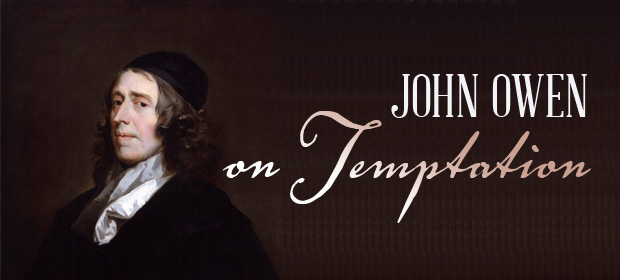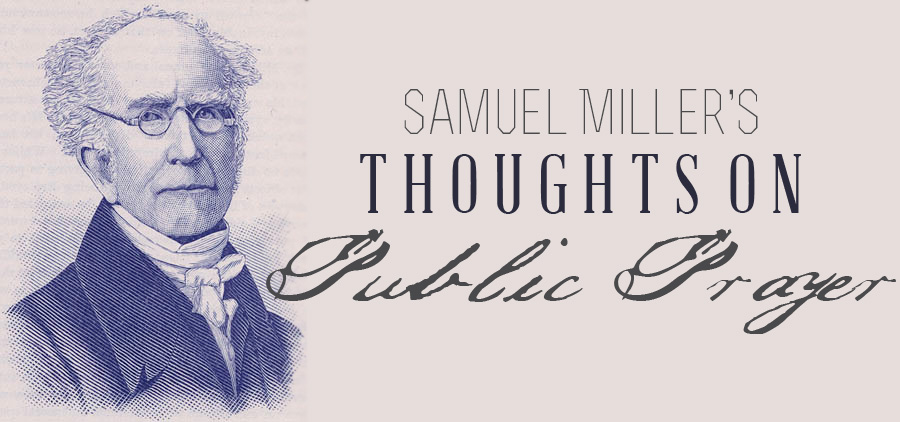The one thing we most urgently needed in Western Christendom is a deeper knowledge of God. We need to know God better . . . We think rather little of what he is like, what he expects of us, what he seeks in us. We are not captured by his holiness and love; his thoughts and words capture too little of our imagination, too little of our discourse, too few of our priorities. – DA Carson
Category Archives: Quotes
Sheer Prayerlessness
In the preface to A Call to Spiritual Reformation DA Carson writes,
I doubt if there is any Christian who has not sometimes found it difficult to pray. In itself this is neither surprising nor depressing: it is not surprising, because we are still pilgrims with many lessons to learn; it is not depressing, because struggling with such matters is part of the way we learn.
What is both surprising and depressing is the sheer prayerlessness that characterizes so much of the Western church. It is surprising, because it is out of step with the Bible that portrays what Christian living should be; it is depressing, because it frequently coexists with abounding Christian activity that somehow seems hollow, frivolous, and superficial. Scarcely less disturbing is the enthusiastic praying in some circles that overflows with emotional release but is utterly uncontrolled by any thoughtful reflection on the prayers of Scripture . . .
If we are to make any headway in reforming our personal and corporate praying then we shall have to begin by listening afresh to Scripture and seeking God’s help in understanding how to apply Scripture to our lives, our homes, and our church.
– Carson, A Call to Spiritual Reformation: Priorities from Paul and His Prayers, 9.
The Business of Obedience
After calling Christians to store up gospel treasure in their hearts, John Owen provides the normative response of such a heart – universal obedience:
He that, having a due acquaintance with the gospel in its excellencies, as to him a word of mercy, holiness, liberty, and consolation, values it, in all its concernments, as his choicest and only treasure,–makes it his business and the work of his life to give himself up unto it in universal obedience, then especially when opposition and apostasy put the patience of Christ to the utmost,–he shall be preserved from the hour of temptation.
– Owen, Overcoming Sin & Temptation, 211-212.
4 Marks of Heralding the Gospel
“From that time Jesus began to preach, saying, “Repent, for the kingdom of heaven is at hand.” – Matthew 4:17
In Preaching: A Biblical Theology Jason Meyer channels Gordon Hugenberger to amplify what it means to herald (kerusso) God’s word. He writes,
The ‘herald’ is the town crier that speaks with the forceful ton of ‘hear, ye.’ In other words, the herald made his proclamation with a rousing “attention-getting noise” that could not be ignored.
Gordon Hugenberger reinforces the gravity of the herald’s task by stressing the political or military associations of the word. He points to the work of Suidas, the tenth-century AD Greek lexicographer, who said, ‘A herald is in time of war what an ambassador is in peace.’ The herald would go into ‘enemy territory ahead of an advancing army to warn the enemy of certain destruction unless they accepted the proffered terms for peace.’ Therefore, the king would invest the herald with power ‘either [to] accept surrender on behalf of his king or to declare war if those terms were rejected.’ The herald’s authority is completely derived and is legitimate only to the degree that he faithfully represents the one who sent him. (23)
Meyer is right to say, “Preaching is not discussing or explaining something with the tone and tenor of a fireside chat.” Preaching instead is the publishing of a King’s reign and rule, it is an announcement calling sinners to lay down their arms of iniquity and surrender their souls to Jesus Christ, the great Warrior King. If preaching is heralding, after the manner Hugenberger recounts, what are some characteristics that ought to be present in the preacher’s heraldic delivery? I can think of four.
4 DISTINGUISHING MARKS OF HERALDING THE GOSPEL
Heralding the gospel means preaching with authority. I am thinking here of a palpable sense of strength in the preacher’s message and delivery. We would go astray if we think the preacher has any authority within himself. No, his authority is derived from the King. The man of God stands behind the sacred desk as the King’s ambassador announcing the terms of the New Covenant. The terms are clear and certain, thus he proclaims them with all the authority the Spirit gives. We would also go astray if we think authority means a particular volume level flowing forth from the preacher’s mouth. I have seen men who are meek in tone preach with more authority than the young pastors who love to dwell in the upper register at all times. An analogy to parenting works well here. There are times when a father needs to raise his voice, but a calm word of instruction or discipline carries no less authority. A herald will have a demeanor of authority.
Heralding the gospel means preaching with confidence. Heralding with authority assumes a peculiar confidence within the herald. He is confident in the King who commissioned him and confident in the word he was sent to announce. If a preacher isn’t confident or assured in the truth he stands to proclaim he will not herald the gospel. Just like authority, heraldic confidence is outward looking. The preacher cannot be confident in his own persuasive power or attractive personality. Persuasive personalities have led many a hearer to hell. No, the herald’s confidence is in the Spirit he received and the Word the Spirit illuminates. Preachers should be careful on these first two marks because misplaced authoritative confidence can slide into arrogance. Heralding is a humble declaration, for the herald preaches not himself.
Heralding the gospel means preaching with urgency. Life and death hang in the balance during every sermon. The herald nor the hearer has any guarantee of tomorrow, of another chance to speak or listen. I can’t improve on the Prince of Preachers words here, “Oh my brothers and sisters in Christ, if sinners will be damned, at least let them leap to hell over our bodies. And if they will perish, let them perish with our arms about their knees, imploring them to stay, and not madly to destroy themselves. If hell must be filled, at least let it be filled in the teeth of our exertions, and let not one go there unwarned and unprayed for.”
Heralding the gospel means preaching with fearlessness. This is the overriding mark that Meyer is concerned with, and rightfully so. Heralding means not fearing man, but fearing the King of Kings. It is His word, thus it must not be tampered with. The preacher is to obey the command of old, “Cry aloud; do not hold back; lift up your voice like a trumpet; declare to my people their transgression, to the house of Jacob their sins” (Isa. 58:1). Jesus knows heraldic preaching will be opposed, will bring persecution, and will often bring death, but the herald must fear God alone: “So have no fear of them, for nothing is covered that will not be revealed, or hidden that will not be known.What I tell you in the dark, say in the light, and what you hear whispered, proclaim on the housetops. And do not fear those who kill the body but cannot kill the soul. Rather fear him who can destroy both soul and body in hell” (Matt. 10:26-28).
Preacher, you are a herald. Will you climb to the sacred desk this weekend? If so, make your ascent and then open your mouth with authority, confidence, urgency, and fearlessness.
Store the Heart
In Of Temptation, John Owen encourages Christians to store up their hearts with truth in order to stand against temptation:
But store the heart with a sense of the love of God in Christ, and his love in the shedding of it; get a relish of the privileges we have thereby,–our adoption, justification, acceptation with God; fill the heart with thoughts of the beauty of his death;–and thou wilt, in an ordinary course of walking with God, have great peace and security as to the disturbance of temptations.
– Owen, Overcoming Sin & Temptation, 202.
After You’ve Heard a Sermon
It is a most profitable practice, after you have heard a sermon, to confer with some fellow Christian who also heard it, and run over all the particulars of it that you can retain in your memory. Then go away and pray them over again; that is, make them the content and substance of your address to God. Plead with him to instruct you in the truths that were mentioned; to incline you to perform the duties recommended and to mourn over and mortify the sins that were reproved; to teach you to trust and live upon the promises and comforts proposed, and to wait and hope for the glories revealed in that sermon. Let this be done frequently afterwards in the same week, if the sermon be suited to your case and condition of soul.
– Isaac Watts, A Guide to Prayer, 74.
The “I Wills” of Scripture
How greatly I prize a portion of Scripture which is filled with God’s shalls and wills! Everything He says is precious, but His, “I wills,” are peculiarly precious . . . When we come to the, “I wills,” of God, then we get among the precious things, the deep things, the things which minister comfort and strength to the people of God!
His Throne is the Pulpit
His throne is the pulpit; he stands in Christ’s stead; his message is the Word of God; around him are immortal souls; the Savior, unseen, is beside him; the Holy Spirit broods over the congregation; angels gaze upon the scene, and heaven and hell await the issue. What associations and what vast responsibility! – Matthew Simpson
Quoted in Haddon Robinson, Biblical Preaching: The Development and Delivery of Expository Messages, 12.
The Church’s Fundamental Problem
The fundamental problem in the evangelical world today is that God rests too inconsequentially upon the church. His truth is too distant, his grace too ordinary, his judgment too benign, his gospel too easy, and his Christ is too common.
David Wells, God in the Wasteland: The Reality of Truth in a World of Fading Dreams, 28.
Private Prayer Fuels Public Prayer
The old Princeton theologian Samuel Miller closes his work, Thoughts on Public Prayer, by providing five means to excellence in public prayer.
The first means is, “None can hope to attain excellence in the grace and gift of prayer in the public assembly, unless they abound in closet devotion, and in holy communion with God in secret” (261). I found his discussion on this point to be thoroughly challenging and convicting. Here are a few choice quotes:
It is true that, without [private prayer], there may be formal accuracy [in public prayer]; much copiousness and variety, both as to topics and language; much rhetorical beauty. But without private prayer, there will not, there cannot be that feeling sense of divine things; that holy familiarity with the throne of grace, and with the covenant God who sit upon it, which bespeaks one at home in prayer, and whose whole heart is in the exercise. (261)
It cannot be doubted that a defect in private prayer is one of the most abundant sources of faults in public prayer. Hence the frigid, unfeeling accuracy, so often observable in this part of the service of the sanctuary. Hence the hesitation, the embarrassment, and the various improprieties so frequently witnessed in the public prayers of able and pious men. They have not come from their knees in private to the services of the sacred desk. They have not come with hearts reeking with the hallowed influences of the closet, to be the leaders of the Lord’s host in the sanctuary. The consequence is, their hearts are cold. (263)
It is no doubt that we sometimes meet with men of comparatively weak minds, of very small attainments in human knowledge, and in every respect unqualified advantageously to address an assembly in continued discourse, who were yet peculiarly excellent and edifying in social prayer. This is because they live at the throne of grace. (264)
If any desire to make happy attainments, and progressive improvement both in the grace and gift of public prayer, the closet will be found the appropriate and the most important nursery. (266)
We may safely say, then, that no man ever attained any high degree of excellence in public prayer, who had not previously cultivated peculiar intimacy with his covenant God in secret devotion; who had not had his heart trained to more than common familiarity with, and affection for, new covenant blessings; and his tongue loosened to pour out spiritual desires without reserve or faltering.(267)
He that would be acceptable and powerful in public prayer, must know something habitually of what is meant by “wrestling with God” in his closet: must me “mighty” in secret prayer. He who neglects this, or has little taste for this, might as well expect a miracle to be wrought for his help every time he goes to public prayer. (267-268)
It is an old maxim that no one was ever truly eloquent who didn’t really feel. Such is true when it comes to prayer. The pastor must fan the flame of his soul in the closet so that by the time he steps up to the pulpit to pray, he is burning to converse with His God.



